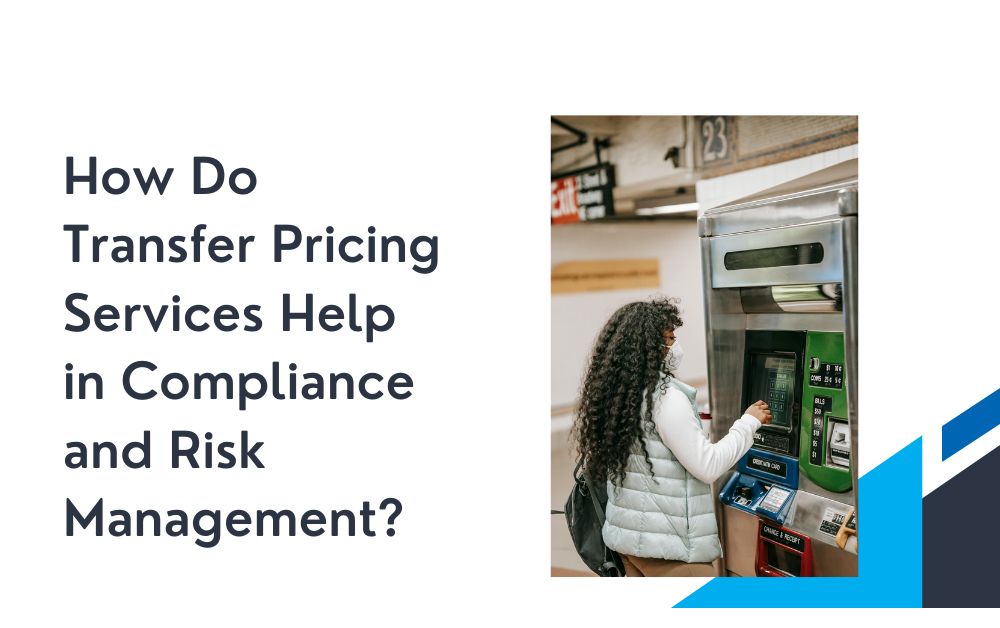Businesses often operate across multiple countries, which can complicate financial reporting and tax obligations. One area where this complexity becomes especially apparent is in transfer pricing. Transfer pricing refers to the rules and methods for pricing transactions between enterprises under common ownership or control. Properly managing transfer pricing is crucial for compliance and risk management. This blog will explore how transfer pricing services can assist businesses in meeting regulatory requirements and managing risks effectively.
Understanding Transfer Pricing
Transfer pricing involves setting prices for transactions between different parts of a company that operates in different countries. For example, if a company based in the U.S. sells goods to its branch in France, the price set for those goods is called the transfer price. These prices can affect a company’s financial statements and tax liabilities.
Why Transfer Pricing Matters
Transfer pricing is important for several reasons:
- Tax Compliance: Different countries have different tax rates. Transfer pricing helps ensure that profits are properly reported and taxed in the correct jurisdictions.
- Financial Reporting: Accurate transfer pricing ensures that financial statements reflect true and fair values, which is crucial for stakeholders.
- Regulatory Compliance: Adhering to local and international transfer pricing rules helps avoid legal issues and penalties.
How Transfer Pricing Services Aid in Compliance
Transfer pricing services are specialized consulting services that help businesses comply with transfer pricing regulations. Here’s how these services assist in ensuring compliance:
1. Understanding and Implementing Regulations
Transfer pricing regulations can be complex and vary by country. Transfer pricing services help by:
- Navigating Local Rules: Consultants are familiar with the specific transfer pricing rules in different jurisdictions. They ensure that your company’s pricing practices align with these rules.
- Global Compliance: They also help in aligning your practices with international guidelines, such as those set by the Organisation for Economic Co-operation and Development (OECD).
2. Documenting Transfer Pricing Policies
Proper documentation is critical for demonstrating compliance. Transfer pricing services assist in:
- Creating Documentation: They help prepare comprehensive documentation that outlines how transfer prices are set, including the methodologies used.
- Maintaining Records: Consultants ensure that all necessary records are kept up-to-date and are ready for any audits or reviews by tax authorities.
3. Preparing Transfer Pricing Reports
Transfer pricing services prepare detailed reports that are often required by tax authorities. These reports:
- Detail Pricing Methods: They explain the methods used to set transfer prices, such as the comparable uncontrolled price method or the cost-plus method.
- Justify Pricing Decisions: Reports provide justifications for pricing decisions, helping to demonstrate that they are in line with market conditions and regulatory requirements.
Managing Risk with Transfer Pricing Services
Effective transfer pricing services also play a key role in managing financial and regulatory risks. Here’s how:
1. Mitigating Tax Risk
Transfer pricing services help manage tax-related risks by:
- Avoiding Double Taxation: Proper transfer pricing can help ensure that profits are taxed only once, reducing the risk of double taxation.
- Minimizing Tax Disputes: By adhering to established guidelines and preparing thorough documentation, businesses can avoid disputes with tax authorities.
2. Avoiding Penalties and Fines
Failure to comply with transfer pricing regulations can result in significant penalties. Transfer pricing services help by:
- Ensuring Accuracy: Consultants ensure that transfer pricing practices and documentation are accurate, reducing the likelihood of errors that could lead to fines.
- Conducting Risk Assessments: They assess your current transfer pricing practices to identify and address potential issues before they become problems.
3. Supporting Audit Readiness
Being prepared for audits is crucial for managing risk. Transfer pricing services support audit readiness by:
- Preparing for Audits: Consultants help organize and review documentation to ensure it meets all requirements and can stand up to scrutiny during an audit.
- Providing Expert Advice: During an audit, transfer pricing experts can provide guidance and support to address any questions or issues raised by auditors.
Choosing the Right Transfer Pricing Service
Selecting the right transfer pricing service is important for both compliance and risk management. Here are some factors to consider:
1. Expertise and Experience
When choosing a transfer pricing service provider, consider their:
- Industry Knowledge: Look for consultants who have experience in your industry, as they will better understand the specific challenges and regulations you face.
- Track Record: Evaluate their history of successful engagements and their reputation in handling complex transfer pricing issues.
2. Service Range
Ensure the service provider offers a comprehensive range of services, including:
- Policy Development: Assistance with creating and implementing transfer pricing policies.
- Documentation and Reporting: Help with preparing and maintaining required documentation and reports.
- Compliance Reviews: Regular reviews to ensure ongoing compliance with changing regulations.

3. Cost and Value
Consider the cost of the services in relation to the value they provide:
- Fee Structure: Understand how fees are structured and what is included in the cost. Some firms may offer fixed fees, while others may charge hourly rates.
- Return on Investment: Assess the value of the services in terms of risk mitigation, compliance, and potential savings from avoiding penalties.
Common Challenges in Transfer Pricing
Businesses may face several challenges with transfer pricing:
1. Complex Regulations
Transfer pricing regulations can be complex and frequently changing, making it challenging to stay compliant.
2. Global Coordination
For multinational companies, coordinating transfer pricing practices across different countries can be difficult.
3. Documentation Requirements
Maintaining thorough and accurate documentation can be time-consuming and requires careful attention to detail.
Conclusion
Transfer pricing services are essential for businesses operating across multiple countries, helping them navigate complex regulations, ensure compliance, and manage risks effectively. By understanding the role of these services and choosing the right provider, businesses can maintain accurate financial reporting, avoid legal issues, and optimize their global operations. If you’re facing challenges with transfer pricing or need support in managing your compliance and risk, consider engaging with a specialized transfer pricing service to help you achieve your goals.
Note:- For read more articles visit on blogmates.

